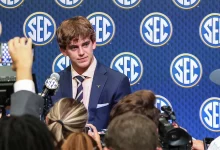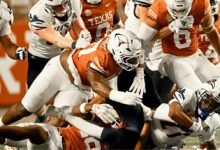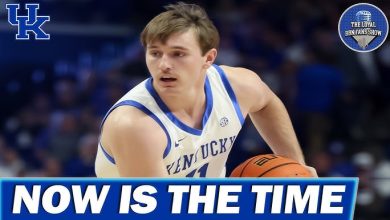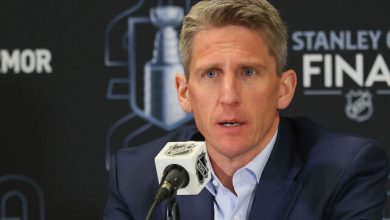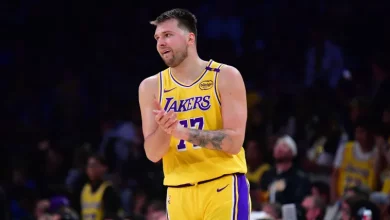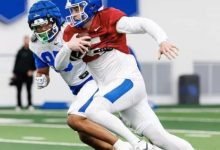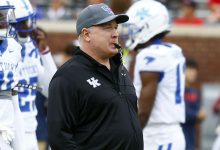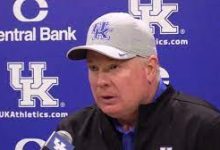The Los Angeles Lakers are struggling with injuries and performance.
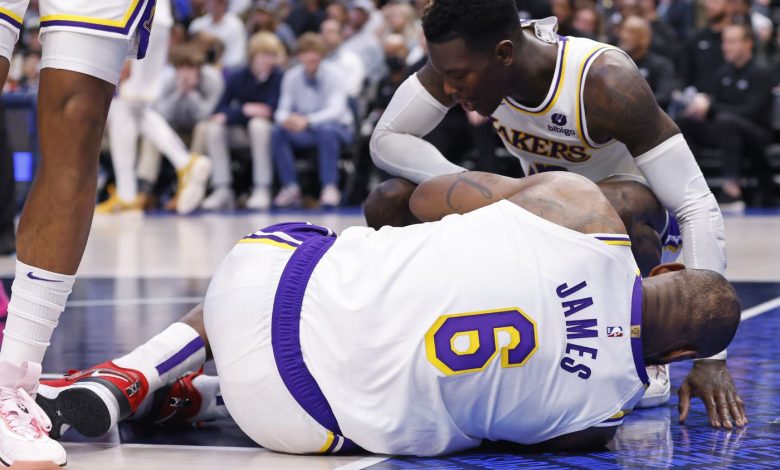
The Los Angeles Lakers, one of the most storied franchises in NBA history, have faced an undeniable challenge in recent seasons. Despite having one of the most well-known and dominant players in NBA history, LeBron James, the Lakers’ performance has faltered at times, especially when compounded by injuries. As a team built to contend for championships, the Lakers’ current struggles with injuries and inconsistent performance have become a focal point for fans, analysts, and the media alike. In this piece, we will explore how the team’s injury woes and fluctuating play have affected their season, the impact on key players, and the larger questions about the team’s future.
The Injury Bug: A Persistent Problem for the Lakers
Injuries are nothing new in the NBA, but for the Lakers, the injury bug seems to have been particularly persistent over the past few seasons. LeBron James, at the age of 40, is still playing at an incredibly high level, but his health has become a critical concern for the Lakers. In addition to LeBron, other key players have also battled injuries, further compounding the team’s struggles. The combination of aging stars and a fragile injury history has created a sense of urgency around the Lakers’ roster.
LeBron’s injuries have been the most high-profile, and for good reason. The future Hall of Famer, despite defying father time for much of his career, has had his share of physical setbacks in recent seasons. From groin strains to ankle issues, LeBron’s ability to stay on the court has often been a question mark. Given the team’s reliance on him as the primary offensive and defensive force, his absences leave a massive void, both on the court and in terms of leadership. When LeBron is off the floor, the Lakers often struggle to find their rhythm, as the offense becomes less cohesive and the defense loses a key pillar.
Another injury concern for the Lakers has been Anthony Davis. The big man is one of the league’s most dominant players when healthy, known for his ability to impact the game on both ends of the floor. However, Davis has also been frequently sidelined by injuries, particularly related to his lower body and shoulders. His availability has been a constant question mark, and when he is not in the lineup, the Lakers’ defense suffers greatly, and their offensive efficiency plummets.
Furthermore, players like D’Angelo Russell, Austin Reaves, and others have dealt with their own injury issues, making it difficult for the Lakers to establish continuity throughout the season. With multiple players missing significant time, the team has struggled to build chemistry, and their rotations have been constantly disrupted. In a league as competitive as the NBA, consistency is key, and the Lakers have found themselves unable to rely on their key players for long stretches of the season.
LeBron James: Still Great, But for How Long?
LeBron James is undeniably one of the best players to ever step onto an NBA court, and even at 40, he continues to defy expectations with his play. However, the injuries and the wear and tear of an illustrious 20-plus-year career are starting to show. LeBron’s decline—though gradual—is a reality the Lakers must face. At this point in his career, the days of LeBron dominating a game for an entire 48 minutes are largely behind him, and his ability to play through injuries is becoming increasingly limited.
When LeBron is healthy, he can still carry the team. His basketball IQ, passing ability, and leadership are still second to none, and his scoring ability, though not as explosive as in his prime, remains highly effective. Yet, LeBron’s ability to do everything on the court doesn’t negate the fact that his body is starting to break down. Whether it’s the ankle injuries, knee soreness, or the nagging issues that seem to appear year after year, the Lakers’ reliance on LeBron to perform at the highest level night in and night out is starting to take its toll.
LeBron’s injury struggles have raised legitimate concerns about the team’s future. If the Lakers cannot rely on him to stay healthy for a full season, how can they possibly contend for a championship? Even when he is available, LeBron’s minutes need to be managed more carefully, which impacts the team’s overall performance. The Lakers have a fine line to walk, trying to balance LeBron’s presence on the floor with the need to preserve him for the postseason. As the season progresses, the question of whether LeBron can remain healthy and effective is becoming more urgent.
Anthony Davis: The Perennial Injury Risk
Anthony Davis is another player whose health has been a major factor in the Lakers’ inconsistent play. When healthy, Davis is a two-way force, capable of altering the course of a game with his shot-blocking, rebounding, and scoring ability. However, his injury history is a major issue for the Lakers. Throughout his career, Davis has been plagued by various injuries, including Achilles strains, calf injuries, and knee problems. This track record has made it difficult for the Lakers to build around him as a cornerstone of their franchise.
Davis’ injuries have been particularly impactful for the Lakers’ defense. As one of the league’s best rim protectors and versatile defenders, his presence on the court makes a massive difference. Without him, the Lakers’ defense is significantly weaker, and they struggle to protect the rim and force turnovers. Offensively, Davis is the ideal partner for LeBron, as he can operate in the post and space the floor. But when Davis is sidelined, the Lakers are left searching for an identity and a reliable second option behind LeBron.
In addition to Davis, the Lakers have struggled to find consistent contributors behind their two superstars. Players like D’Angelo Russell and Austin Reaves have shown flashes of brilliance, but they are not always able to step up when called upon. The Lakers’ depth has been a recurring issue, and with so many players battling injuries, the team has struggled to develop a reliable rotation.
Inconsistent Performance: Lack of Chemistry and Cohesion
Beyond the injury concerns, the Lakers’ performance on the court has been inconsistent. The team’s roster has undergone changes over the past few seasons, and while the Lakers have added some promising pieces, the constant turnover has made it difficult for the team to find a rhythm. The lack of consistency in the lineup has led to lapses in chemistry, both offensively and defensively.
One of the biggest issues the Lakers have faced this season is their inability to generate consistent offense when LeBron or Davis is out of the lineup. With LeBron’s playmaking and scoring abilities missing, the Lakers often struggle to create good shots and maintain offensive flow. While Davis can carry the scoring load in the post, his injury history means that the Lakers cannot always rely on him to be their primary scorer.
Additionally, the Lakers have had issues with defensive consistency. While they have the personnel to be an elite defensive team, their rotations have often been sloppy, and their ability to execute in high-pressure situations has been lacking. This has been exacerbated by the injuries, which have forced head coach Darvin Ham to shuffle the lineup constantly. In the NBA, defense is often about trust and cohesion, and with so many moving parts, the Lakers have had difficulty establishing a defensive identity.
The Larger Question: Can the Lakers Contend?
With all these struggles—injuries, inconsistent performance, and a lack of chemistry—many are wondering whether the Lakers can realistically contend for a championship this season. On paper, the Lakers have the talent to compete. LeBron James is still an elite player, and Anthony Davis, when healthy, is one of the best in the league. However, the constant injuries, particularly to LeBron and Davis, have raised serious questions about their ability to stay healthy for an entire playoff run.
The Lakers have made some smart moves in recent years, adding players like D’Angelo Russell, Rui Hachimura, and Austin Reaves to help balance the roster. However, the lack of reliable depth and the continued injury issues have left them vulnerable. If LeBron and Davis cannot stay healthy and perform at their best in the postseason, the Lakers may struggle to keep up with the more balanced and healthy teams in the Western Conference.
At the same time, the Lakers’ front office faces difficult decisions moving forward. Should they continue to build around LeBron and Davis, knowing that their health may be an issue for the foreseeable future? Or do they pivot and look for ways to improve the roster for the long term, potentially exploring trade options or developing younger players who can contribute in the future?

